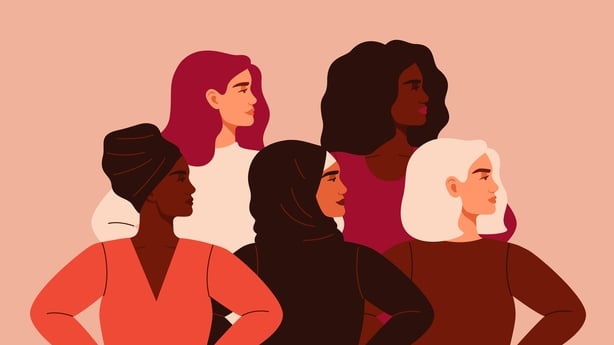Journalist Sarah Gill looks at the rise and fall of the #GirlBoss, and asks if the movement was every truly empowering to women.
It's funny how quickly a wide-reaching phenomenon can grow stale, and the term 'girlboss’ went from noun to verb at break-neck speed. Its journey towards irony was more of a light jog than a slow march, faltering fast under speculation and cynicism.
‘Gaslight, gatekeep, girlboss’ parodies the ‘live, laugh, love’ mantra, poking fun at the niche strains of lying, exclusion and corporate feminism - the toxic trailblazer trifecta. Once being lauded for ushering in a new era of (what transpired to be pseudo) feminism, the pink-washed world of the girlboss has become a punchline.
The women’s liberation movement has been ongoing for decades. We’ve seen generation after generation of women fight tooth and nail to not just earn their seat at the table, but to command the whole room. So in that case, why do we hate to see a girlboss winning?
Borrowing selective feminist ideals that suit their agenda of profit maximisation and personal gain, the girlboss is an offshoot of the female boss that sunk into the social consciousness in the 1980s. All power suits and pursed lips, the media loves utilising this characterisation as a means of emphasising one dimensional depictions of womanhood.

According to mainstream cinema of years gone by, women can either be a loving, nurturing, empathetic person, or a cold hearted b*tch. Take The Devil Wears Prada’s Miranda Priestly. Editor-in-chief of a fashion magazine, Priestly is driven by her career and all else pales in comparison.
Throughout the movie, we catch a glimpse into the formidable Ms Priestly’s crumbling personal life. After her husband files for divorce, she muses over her public perception and how her team can minimise the fallout. "I can just imagine what they’re going to write about me," she says. "The dragon lady. Career-obsessed snow queen drives away another Mr Priestly."
From Working Girl to Baby Boom, the ‘80s alone showed us numerous iterations of a ‘tough, cold career woman’ whose icy exterior gradually melts away and priorities shift. The female boss trope plays out within a man’s world where you’re forced to choose between having a family or professional success, but don’t dare to delude yourself into believing you can have it all.
Over the years, this trope has evolved and taken new shapes. We became less concerned with how the founder of a multi-million dollar organisation might emasculate her husband, and more invested in her leadership style and how she interacts with those around her.
From third wave feminism to the advent of social media, we were given a greater insight into women in business and female entrepreneurship increased drastically.

In the very same year that Beyoncé was credited with ‘making feminism cool again’, Nasty Gal CEO Sophia Amorusa released her 2014 memoir and the emerging #Girlboss mentality was given a name.
In the book, Amorusa describes a girlboss as a woman "whose success is defined in opposition to the masculine business world in which she swims upstream." Going from reselling vintage clothes on eBay to running her own multi-million dollar online boutique in just five years, you could say this savvy queen is absolutely slaying the game.
By 2015, things got… well, nasty. Hit by a discrimination lawsuit for allegedly firing pregnant employees, many ex-Nasty Gal workers have spoken out on the toxic work environment created by Amoruso. "She presents herself as someone [who is] aspirational for women," one of the former employees told Jezebel.
"Her success is noteworthy, but she rarely acknowledges the people who helped her build the company [and] instead credits the success to her ‘hard work, long hours, paying models with burgers, etc.’"
Branded a ‘feminist fraud’ by the New York Post, Nasty Gal filed for bankruptcy in 2016 and was sold to Boohoo for $20 million. Amoruso began putting her efforts into her media company, still espousing the word of the girlboss, saying that it is not just a feeling, but a philosophy, a "way for women to reframe success for ourselves, on our own terms."

That sounds great in theory - all the best indoctrinations do - but what the girlboss is effectively doing is monetising feminism and using an entire socio-political ideology to their own advantage. Printing ‘girls supporting girls’ on a t-shirt made by criminally underpaid garment workers is more than a little tone deaf.
By positioning the wins of a girlboss as a win for womankind, we can convince ourselves that these ventures have somehow sidestepped capitalism as a whole. Through pinkwashing, brands pick and choose from feminist rhetoric while doing absolutely nothing to change or challenge structural inequalities.
Being a girlboss is all about superficial empowerment. The archetype is a privileged white woman who profits from paying lip service to social justice, cares more about the optics than the motives, and makes feminism part and parcel of the entire brand. With the more weighted merit placed on the Millennial purchase, follow through is an essential requirement.
In Audre Lorde’s 1984 essay, she writes that though the master’s tools "may allow us temporarily to beat him at his own game", they will never dismantle the master’s house. At the end of the day, while it may be helmed by a woman, the business still exists within a patriarchal, capitalist structure.

To be a woman in business, there are an infinite amount of boxes that need to be ticked. Held to a greater degree of scrutiny than their male counterparts, a 'she-EO' must be approachable, (but not a pushover) assertive, (but not too bossy) and endeavour to balance the demands of owning a business, finding a partner and maybe even motherhood - all without smudging her lipstick.
There is an expectation that a woman must be extremely ambitious, work numerous side hustles and make good use of all twenty four hours in the day à la Molly Mae in order to be considered a success.
We’re meant to strive to be exceptional, rise through the ranks and live by a point system so that we can avoid mediocrity at all costs.
Sixteenth century philosopher Michel de Montaigne wrote that "to storm a breach, conduct an embassy, govern a people, those are brilliant actions [but] to scold, laugh, sell, pay, love, hate, and deal gently and justly with one's family and oneself, not to relax or contradict oneself: that is something rarer, more difficult and less noticed by the world."
I think what he is essentially saying here is that some of us have to be #girlemployees to keep the world ticking over. Sometimes it’s enough to simply exist.
The views expressed here are those of the author and do not represent or reflect the views of RTÉ.


